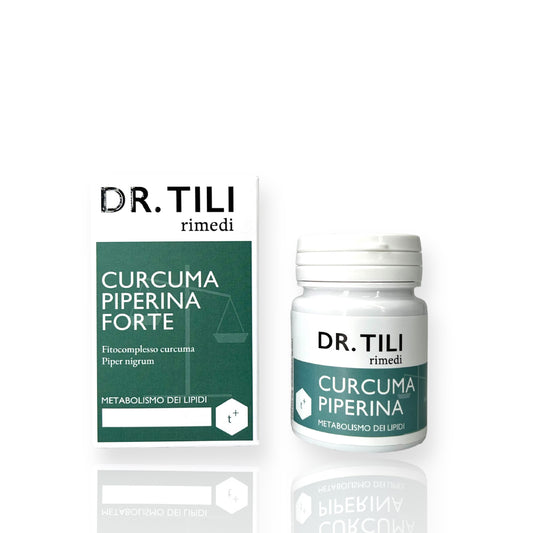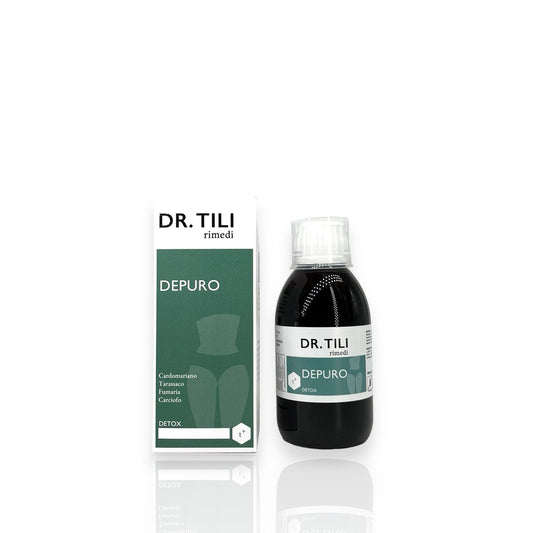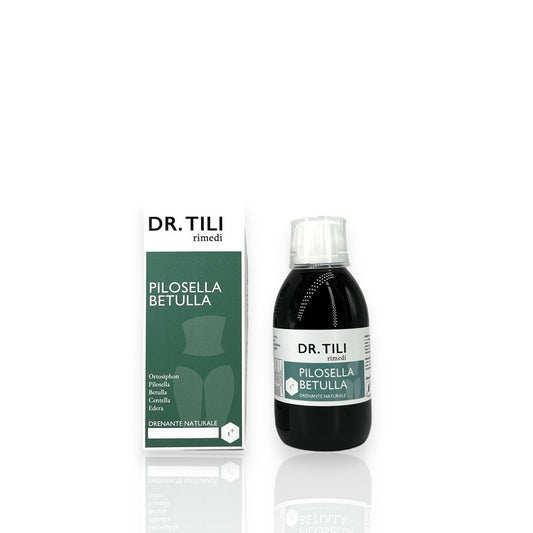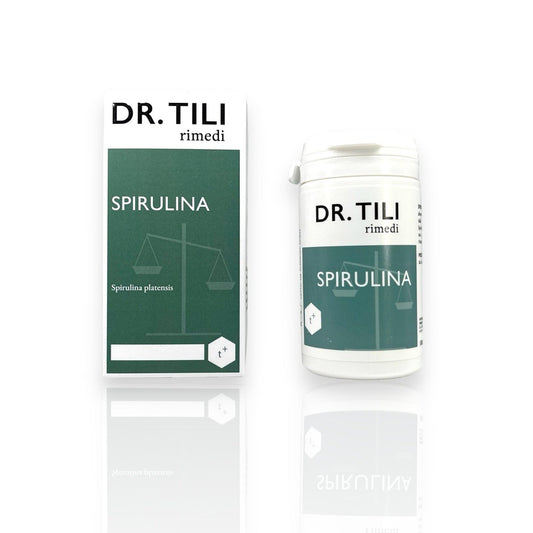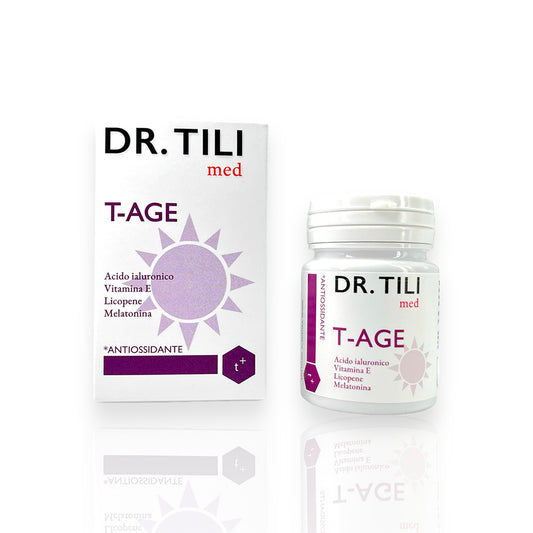ANGELINI SpA
Moment 200 Mg Ibuprofen 12 Coated Tablets
Moment 200 Mg Ibuprofen 12 Coated Tablets

Pickup available at Farmacia Tili
Usually ready in 24 hours
PRODUCT NET WEIGHT
PRODUCT NET WEIGHT
EAN
EAN
025669019
MINSAN
MINSAN
025669019
Moment 12 Coated Tablets 200 Mg is an over-the-counter drug based on Ibuprofen , a molecule with analgesic, pain-relieving, anti-inflammatory and antipyretic action .
Moment 12 Tablets, with its analgesic and anti-inflammatory action , is useful for treating pain of various origins and natures such as: headache, toothache, neuralgia, osteo-articular and muscular pain, menstrual pain.
Moment Ibuprofen 12 Tablets has an antipyretic action indicated for adults only , useful for lowering temperature and assisting in the treatment of fever and flu symptoms .
ACTIVE INGREDIENTS
Active ingredients contained in Moment 200Mg Ibuprofen 12 Coated Tablets - What is the active ingredient in Moment 200Mg Ibuprofen 12 Coated Tablets?
Each coated tablet contains active substance: ibuprofen 200 mg. Excipients with known effect: sucrose, sodium. For a full list of excipients, see section 6.1.
EXCIPIENTS
Composition of Moment 200Mg Ibuprofen 12 Coated Tablets - What does Moment 200Mg Ibuprofen 12 Coated Tablets contain?
Each tablet contains: maize starch, sodium starch glycolate, povidone, colloidal anhydrous silica, talc, hydroxypropylcellulose, gum arabic, sucrose, macrogol 6000, light magnesium carbonate, titanium dioxide.
DIRECTIONS
Therapeutic indications Moment 200 Mg Ibuprofen 12 Coated Tablets - Why is Moment 200Mg Ibuprofen 12 Coated Tablets used? What is it used for?
Pain of various origins and natures (headache, toothache, neuralgia, osteo-articular and muscular pain, menstrual pain). Adjuvant in the symptomatic treatment of feverish and flu states.
CONTRAINDICATIONS SIDE EFFECTS
Contraindications Moment 200Mg Ibuprofen 12 Coated Tablets - When should Moment 200Mg Ibuprofen 12 Coated Tablets not be used?
Hypersensitivity to the active substance, to other antirheumatics (acetylsalicylic acid, etc.) or to any of the excipients listed in section 6.1; children under 12 years of age; third trimester of pregnancy and breastfeeding (see section 4.6); active or severe gastroduodenal ulcer or other gastropathies; history of gastrointestinal bleeding or perforation related to previous active treatments or history of recurrent peptic ulcer/haemorrhage (two or more distinct episodes of proven ulceration or bleeding); severe hepatic or renal insufficiency; severe cardiac insufficiency (NYHA class IV); severe dehydration (caused by vomiting, diarrhoea or insufficient fluid intake).
DOSAGE
Quantity and method of taking Moment 200Mg Ibuprofen 12 Coated Tablets - How to take Moment 200 Mg Ibuprofen 12 Coated Tablets?
Dosage, adults and adolescents over 12 years: 1-2 tablets, 2-3 times a day. Do not exceed the dose of 1200 mg (6 tablets) per day. If the use of the medicinal product is necessary for more than 3 days in adolescents aged 12 years and over, or in case of worsening of symptoms, a doctor should be consulted. Do not exceed the recommended doses. Elderly patients should adhere to the minimum dosages indicated above (see section 4.4). Undesirable effects may be minimised by using the lowest effective dose for the shortest duration necessary to control symptoms (see section 4.4). Renal impairment: in patients with mild or moderate reduction of renal function, the dosage should be kept as low as possible for the shortest duration necessary to control symptoms and renal function should be monitored. Hepatic impairment: In patients with mild or moderate reduction of liver function, the dosage should be kept as low as possible for the shortest duration necessary to control symptoms and liver function should be monitored. Moment is contraindicated in patients with severe hepatic impairment (see section 4.3). Paediatric population: Moment is contraindicated in children under 12 years of age (see section 4.3). Method of administration: Moment can be taken on an empty stomach. In subjects with gastric tolerability problems, it is preferable to take the medicine on a full stomach.
CONSERVATION
Storage Moment 200Mg Ibuprofen 12 Coated Tablets - How to store Moment 200Mg Ibuprofen 12 Coated Tablets?
This medicine does not require any special storage temperatures.
WARNINGS
Warnings Moment 200Mg Ibuprofen 12 Coated Tablets - About Moment 200Mg Ibuprofen 12 Coated Tablets it is important to know that:
In asthmatic patients the product should be used with caution, following medical evaluation. The use of Moment, as with any drug inhibiting the synthesis of prostaglandins and cyclooxygenase is not recommended in women who intend to become pregnant. The administration of Moment should be suspended in women who have fertility problems or who are undergoing investigation of fertility. Undesirable effects may be minimised by using the lowest effective dose for the shortest duration necessary to control symptoms (see paragraphs below on gastrointestinal and cardiovascular risks). Elderly: elderly patients have an increased frequency of adverse reactions to NSAIDs, especially gastrointestinal bleeding and perforation, which may be fatal (see section 4.2). Cardiovascular and cerebrovascular effects Clinical trials suggest that use of ibuprofen, particularly at high doses (2400 mg/day), may be associated with a modest increased risk of arterial thrombotic events (e.g. myocardial infarction or stroke). Overall, epidemiological studies do not suggest that low doses of ibuprofen (e.g. <= 1200 mg/day) are associated with an increased risk of arterial thrombotic events. Patients with uncontrolled hypertension, congestive heart failure (NYHA II-III), established ischaemic heart disease, peripheral arterial disease, and/or cerebrovascular disease should only be treated with ibuprofen after careful consideration and high doses (2400 mg/day) should be avoided. Careful consideration should also be exercised before initiating long-term treatment of patients with risk factors for cardiovascular events (e.g. hypertension, hyperlipidaemia, diabetes mellitus, smoking), particularly if high doses (2400 mg/day) of ibuprofen are required. Caution is advised before initiating treatment in patients with a history of hypertension and/or heart failure since fluid retention, hypertension and oedema have been reported in association with NSAID therapy. NSAIDs may reduce the effect of diuretics, unlike other antihypertensive agents (see section 4.5). Gastrointestinal bleeding, ulceration and perforation: the use of Moment should be avoided in combination with NSAIDs, including selective cyclooxygenase-2 (COX-2) inhibitors due to an increased risk of ulceration and bleeding (see section 4.5). Gastrointestinal bleeding, ulceration and perforation, which may be fatal, have been reported with all NSAIDs at anytime during treatment, with or without warning symptoms or a previous history of serious GI events. The risk of GI bleeding, ulceration or perforation is higher with increasing NSAID doses, in the elderly and in patients with a history of ulcer, particularly if complicated with haemorrhage or perforation (see section 4.3). These patients should start treatment on the lowest dose available. Concomitant use of protective agents (e.g. misoprostol or proton pump inhibitors) should be considered for these patients, and also for patients taking low dose aspirin or other drugs likely to increase GI risk (see below and section 4.5). Patients with a history of GI toxicity, particularly when elderly, should report any unusual GI symptoms (especially GI bleeding) particularly in the initial stages of treatment. Carefully monitor patients receiving concomitant medications which could increase the risk of ulceration or bleeding, such as oral corticosteroids, anticoagulants such as warfarin, selective serotonin reuptake inhibitors or anti-platelet agents such as aspirin (see section 4.5). When gastrointestinal bleeding or ulceration occurs in patients receiving Moment, the treatment should be withdrawn. NSAIDs should be given with caution to patients with a history of gastrointestinal disease (ulcerative colitis, Crohn's disease) as these conditions may be exacerbated (see section 4.8). Renal effects: Caution should be exercised in patients with considerable dehydration when initiating treatment with ibuprofen. Ibuprofen may cause water, sodium and potassium retention in patients with no history of renal disease due to its effects on renal perfusion. This may lead to oedema or cardiac failure or hypertension in predisposed patients. Long-term use of ibuprofen, as with other NSAIDs, has led to renal papillary necrosis and other pathological renal changes. In general, the habitual use of analgesics, especially combinations of several analgesic active ingredients, can lead to permanent renal damage, with risk of onset of renal failure (analgesic nephropathy). Renal toxicity has been observed in patients in whom renal prostaglandins have a compensatory role in maintaining renal perfusion. The administration of NSAIDs in these patients may lead to a dose-dependent reduction in prostaglandin formation and, as a secondary effect, renal blood flow which can quickly lead to renal failure. Patients most at risk of these reactions are those with reduced renal function, heart failure, liver dysfunction, the elderly and all those patients taking diuretics and ACE inhibitors. Discontinuation of NSAID therapy is usually followed by recovery to the pre-treatment state. There is a risk of impaired renal function in dehydrated adolescents. In case of prolonged use, renal function should be monitored, particularly in cases of diffuse lupus erythematosus. Severe skin reactions: Serious skin reactions, some of them fatal, including exfoliative dermatitis, Stevens-Johnson syndrome, and toxic epidermal necrolysis, have been reported rarely in association with the use of NSAIDs (see section 4.8). Patients appear to be at highest risk early in the course of therapy: the onset of the reaction occurring in the majority of cases within the first month of treatment. Acute generalized exanthematous pustulosis (AGEP) has been reported in relation to medicinal products containing ibuprofen.
INTERACTIONS
Interactions Moment 200Mg Ibuprofen 12 Coated Tablets - Which medicines or foods can modify the effect of Moment 200Mg Ibuprofen 12 Coated Tablets?'
Ibuprofen (like other NSAIDs) should be used with caution in combination with the substances listed below. Corticosteroids: increased risk of gastrointestinal ulceration or bleeding (see section 4.4). Anticoagulants: NSAIDs may increase the effects of anticoagulants, such as warfarin or heparin (see section 4.4). In case of concomitant treatment, monitoring of the coagulation status is recommended. Acetylsalicylic acid: concomitant administration of ibuprofen and acetylsalicylic acid is generally not recommended due to the potential for increased adverse effects. Experimental data suggest that ibuprofen may competitively inhibit platelet aggregation with low dose acetylsalicylic acid when the two drugs are administered concomitantly. Although there are uncertainties regarding the extrapolation of these data to the clinical situation, the possibility that regular, long-term use of ibuprofen may reduce the cardioprotective effect of low-dose acetylsalicylic acid cannot be excluded. No clinically relevant effect is considered likely following occasional use of ibuprofen (see section 5.1). Cyclooxygenase-2 (COX-2) inhibitors and other NSAIDs: These substances may increase the risk of adverse reactions affecting the gastrointestinal tract (see section 4.4). However, it is advisable not to combine ibuprofen with acetylsalicylic acid or other NSAIDs, including selective COX-2 inhibitors, due to the potential additive effect (see section 4.4). Anti-platelet agents and selective serotonin reuptake inhibitors (SSRIs): Increased risk of gastrointestinal bleeding (see section 4.4). Diuretics, ACE inhibitors (such as captopril), beta blockers and angiotensin II antagonists: NSAIDs may reduce the effect of diuretics and other antihypertensive drugs. Diuretics may also increase the risk of nephrotoxicity associated with NSAIDs. In some patients with compromised renal function (e.g. dehydrated patients or elderly patients with compromised renal function) the co-administration of an ACE inhibitor or an angiotensin II antagonist and agents that inhibit cyclooxygenase may result in further deterioration of renal function, including possible acute renal failure, which is usually reversible. These interactions should be considered in patients taking Moment concomitantly with ACE inhibitors or angiotensin II antagonists. Therefore, the combination should be administered with caution, especially in elderly patients. Patients should be adequately hydrated and consideration should be given to monitoring renal function after initiation of concomitant therapy and thereafter. Phenytoin and lithium: Concomitant administration of ibuprofen and phenytoin or lithium preparations may result in reduced elimination of these drugs with consequent increase in their plasma levels with the possibility of reaching the toxic threshold. If this combination is deemed necessary, monitoring of plasma levels of phenytoin and lithium is recommended in order to adapt the dosage during concomitant treatment with ibuprofen. Methotrexate: NSAIDs may inhibit the tubular secretion of methotrexate and some metabolic interactions may occur resulting in reduced methotrexate clearance and increased risk of toxicity. Moclobemide: increases ibuprofen. Aminoglycosides: NSAIDs may decrease the excretion of aminoglycosides increasing toxicity. Cardiac glycosides: NSAIDs may exacerbate cardiac failure, reduce the glomerular filtration rate and increase plasma levels of cardiac glycosides. Monitoring of serum glycoside levels is recommended. Cholestyramine: Concomitant administration of ibuprofen and cholestyramine may reduce the absorption of ibuprofen from the gastrointestinal tract. However, the clinical relevance of this interaction is unknown. Ciclosporin: Concomitant administration of ciclosporin and some NSAIDs causes an increased risk of renal damage. This effect cannot be excluded for the combination of ciclosporin and ibuprofen. Plant extracts: Ginkgo Biloba may increase the risk of bleeding in association with NSAIDs. Mifepristone: Due to the anti-prostaglandin properties of NSAIDs, their use after mifepristone administration may result in a reduction of mifepristone. Limited evidence suggests that co-administration of NSAIDs and prostaglandins on the same day does not adversely affect the effects of mifepristone or the prostaglandin on cervical ripening or uterine contractility and does not reduce the clinical efficacy of the medicinal product on pregnancy termination. Quinolone antibiotics: Patients taking NSAIDs and quinolones may have an increased risk of developing convulsions. Sulfonylureas: NSAIDs may increase the hypoglycaemic effect of sulfonylureas. Monitoring of blood glucose levels is recommended in the case of simultaneous treatment. Tacrolimus: Co-administration of NSAIDs and tacrolimus may increase the risk of nephrotoxicity. Zidovudine: There is evidence of an increased risk of haemarthrosis and haematoma in HIV-positive haemophiliac patients receiving concomitant treatment with zidovudine and other NSAIDs. A blood test is recommended 1-2 weeks after starting treatment. Ritonavir: may cause an increase in plasma concentrations of NSAIDs. Probenecid: slows the excretion of ibuprofen, with possible increase in its plasma concentrations. CYP2C9 inhibitors: Concomitant administration of ibuprofen with CYP2C9 inhibitors may slow the elimination of ibuprofen (CYP2C9 substrate) resulting in increased exposure to ibuprofen. In a study with voriconazole and fluconazole (CYP2C9 inhibitors), an increased exposure to S(+)-ibuprofen of approximately 80% to 100% was observed. Consideration should be given to reducing the dose of ibuprofen when co-administered with strong CYP2C9 inhibitors, particularly when high doses of ibuprofen are administered with voriconazole or fluconazole. Alcohol, bisphosphonates and oxpentifylline (pentoxifylline): may enhance gastrointestinal side effects and the risk of bleeding and ulceration. Baclofen: high toxicity of baclofen.
SIDE EFFECTS
Like all medicines, Moment 200Mg Ibuprofen 12 Coated Tablets can cause side effects - What are the side effects of Moment 200Mg Ibuprofen 12 Coated Tablets?
The undesirable effects observed with ibuprofen are generally common to other analgesics, antipyretics, non-steroidal anti-inflammatory drugs and are reported below using the following convention: very common (>=1/10); common (>=1/100, < 1/10); uncommon (>= 1/ 1,000, < 1/100); rare (>=1/10,000, < 1/1,000); very rare (<1/10,000); not known (frequency cannot be estimated from the available data). The most commonly observed adverse events are gastrointestinal in nature. Gastrointestinal disorders: peptic ulcers, perforation or gastrointestinal bleeding, sometimes fatal, particularly in the elderly, may occur (see section 4.4). Gastrointestinal perforation with the use of ibuprofen has been observed rarely. After administration of Moment the following have been reported: feeling of heaviness in the stomach, nausea, vomiting, diarrhoea, flatulence, constipation, dyspepsia, epigastric pain, heartburn, abdominal pain, melaena, haematemesis, ulcerative stomatitis, exacerbation of colitis and Crohn's disease (see section 4.4). Uncommon: gastritis; very rare: pancreatitis. Immune system disorders: following treatment with NSAIDs the following undesirable effects have been reported: non-specific allergic reaction and anaphylaxis; uncommon: hypersensitivity reactions such as various types of skin rash, urticaria, pruritus, purpura, angioedema, exanthema, respiratory tract reactions including bronchospasm, dyspnoea, asthmatic attack (sometimes with hypotension); rare: lupus erythematosus syndrome; very rare: severe hypersensitivity reactions. Symptoms may include: severe asthma, facial oedema, tongue oedema, laryngeal oedema, airway oedema with bronchospasm, dyspnoea, tachycardia, anaphylaxis, exfoliative and bullous dermatitis. Cardiac and vascular disorders: Clinical trials suggest that use of ibuprofen, particularly at high doses (2400 mg/day), may be associated with a small increased risk of arterial thrombotic events (for example myocardial infarction or stroke) (see section 4.4). Very rare: palpitations, heart failure, myocardial infarction, acute pulmonary oedema, hypertension. Other adverse events for which causality has not necessarily been established include: Blood and lymphatic system disorders: Rare: leucopenia, thrombocytopenia, neutropenia, agranulocytosis, aplastic anaemia and haemolytic anaemia, inhibition of platelet aggregation. Psychiatric disorders. Uncommon: insomnia, anxiety; rare: depression, confusional state, hallucinations. Nervous system disorders. Common: dizziness; uncommon: paraesthesia, somnolence, rare: optic neuritis. Infections and infestations. Uncommon: rhinitis; rare: aseptic meningitis. Rhinitis and aseptic meningitis have been observed especially in patients with pre-existing autoimmune disorders (such as systemic lupus erythematosus and mixed connective tissue disease) with symptoms of stiff neck, headache, nausea, vomiting, fever or disorientation (see section 4.4). Exacerbation of infection-related inflammation (e.g. development of necrotising fasciitis) has been described. Respiratory, thoracic and mediastinal disorders. Uncommon: bronchospasm, dyspnoea, apnoea. Eye disorders. Uncommon: visual disturbances; rare: ocular impairment resulting in visual disturbances, toxic optic neuropathy. Ear and labyrinth disorders. Uncommon: impaired hearing, tinnitus, vertigo. Hepatobiliary disorders. Uncommon: abnormal liver function, hepatitis and jaundice; very rare: liver failure. Skin and subcutaneous tissue disorders. Allergic skin rashes (erythema, pruritus, urticaria) may occasionally occur. Uncommon: photosensitivity reactions; very rare: bullous dermatitis including Stevens-Johnson syndrome, toxic epidermal necrolysis and erythema multiforme. In exceptional cases, serious skin infections and soft tissue disorders may occur during chickenpox infection (see "Infections and infestations"). Not known: drug reaction with eosinophilia and systemic symptoms (DRESS syndrome), acute generalized exanthematous pustulosis (AGEP). Renal and urinary disorders. Uncommon: impaired renal function and toxic nephropathy in various forms, including interstitial nephritis, nephrotic syndrome and renal failure; rare: azotaemia. General disorders and administration site conditions. Common: malaise, fatigue; rare: oedema. Diagnostic tests. Rare: increased transaminases, increased alkaline phosphatase, decreased haemoglobin, decreased haematocrit, prolonged bleeding time, decreased blood calcium, increased blood uric acid. Reporting of suspected adverse reactions. Reporting suspected adverse reactions that occur after authorisation of the medicinal product is important. It allows continued monitoring of the benefit/risk balance of the medicinal product. Healthcare professionals are asked to report any suspected adverse reactions via the national reporting system at https://www.aifa.gov.it/content/segnalazioni-reazioni-avverse.
PREGNANCY AND BREASTFEEDING
If you are pregnant or breast-feeding, think you may be pregnant or are planning to have a baby, ask your doctor for advice before taking Moment 200Mg Ibuprofen 12 Coated Tablets.
Pregnancy: Inhibition of prostaglandin synthesis may adversely affect the pregnancy and/or embryo/fetal development. Results of epidemiological studies suggest an increased risk of miscarriage and cardiac malformation and gastroschisis after use of a prostaglandin synthesis inhibitor in early pregnancy. The absolute risk of cardiac malformations increased from less than 1%, up to approximately 1.5%. The risk was believed to increase with dose and duration of therapy. In animals, administration of prostaglandin synthesis inhibitors has been shown to result in increased pre- and post-implantation loss and embryo-fetal mortality. In addition, an increased incidence of various malformations, including cardiovascular, has been reported in animals administered prostaglandin synthesis inhibitors during the organogenetic period. From the twentieth week of pregnancy onwards, the use of Moment may cause oligohydramnios resulting from fetal renal dysfunction. This may occur soon after initiation of treatment and is usually reversible upon discontinuation. In addition, cases of constriction of the ductus arteriosus have been reported after treatment in the second trimester, most of which resolved upon discontinuation of treatment. Therefore, during the first and second trimester of pregnancy, Moment should not be given unless clearly necessary. If Moment is used by a woman attempting to conceive or during the first and second trimester of pregnancy, the dose and duration of treatment should be kept as low as possible. Following exposure to Moment for several days from gestational week 20 onwards, antenatal monitoring for oligohydramnios and constriction of the ductus arteriosus should be considered. Moment should be discontinued if oligohydramnios or constriction of the ductus arteriosus is observed. During the third trimester of pregnancy, all prostaglandin synthesis inhibitors may expose the fetus to: cardiopulmonary toxicity (premature constriction/closure of the ductus arteriosus and pulmonary hypertension); renal dysfunction (see above); the mother and the neonate, at the end of pregnancy, to: possible prolongation of bleeding time, an anti-aggregating effect which may occur even at very low doses; inhibition of uterine contractions resulting in delayed or prolonged labor. Consequently, Moment is contraindicated during the third trimester of pregnancy (see and sections 4.3 and 5.3). Breast-feeding: Ibuprofen is excreted in breast milk, but at therapeutic doses during short-term treatment, the risk of influence on the neonate seems unlikely. If, however, treatment is longer term, early weaning should be considered. NSAIDs should be avoided during breast-feeding. Fertility: The use of Ibuprofen may impair female fertility and is not recommended in women attempting to conceive. This effect is reversible upon discontinuation of treatment. In women who have difficulties conceiving or who are undergoing investigation of infertility, discontinuation of ibuprofen should be considered.







